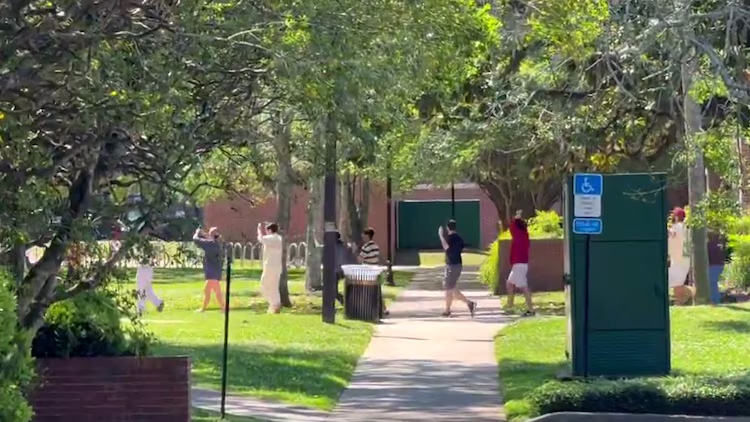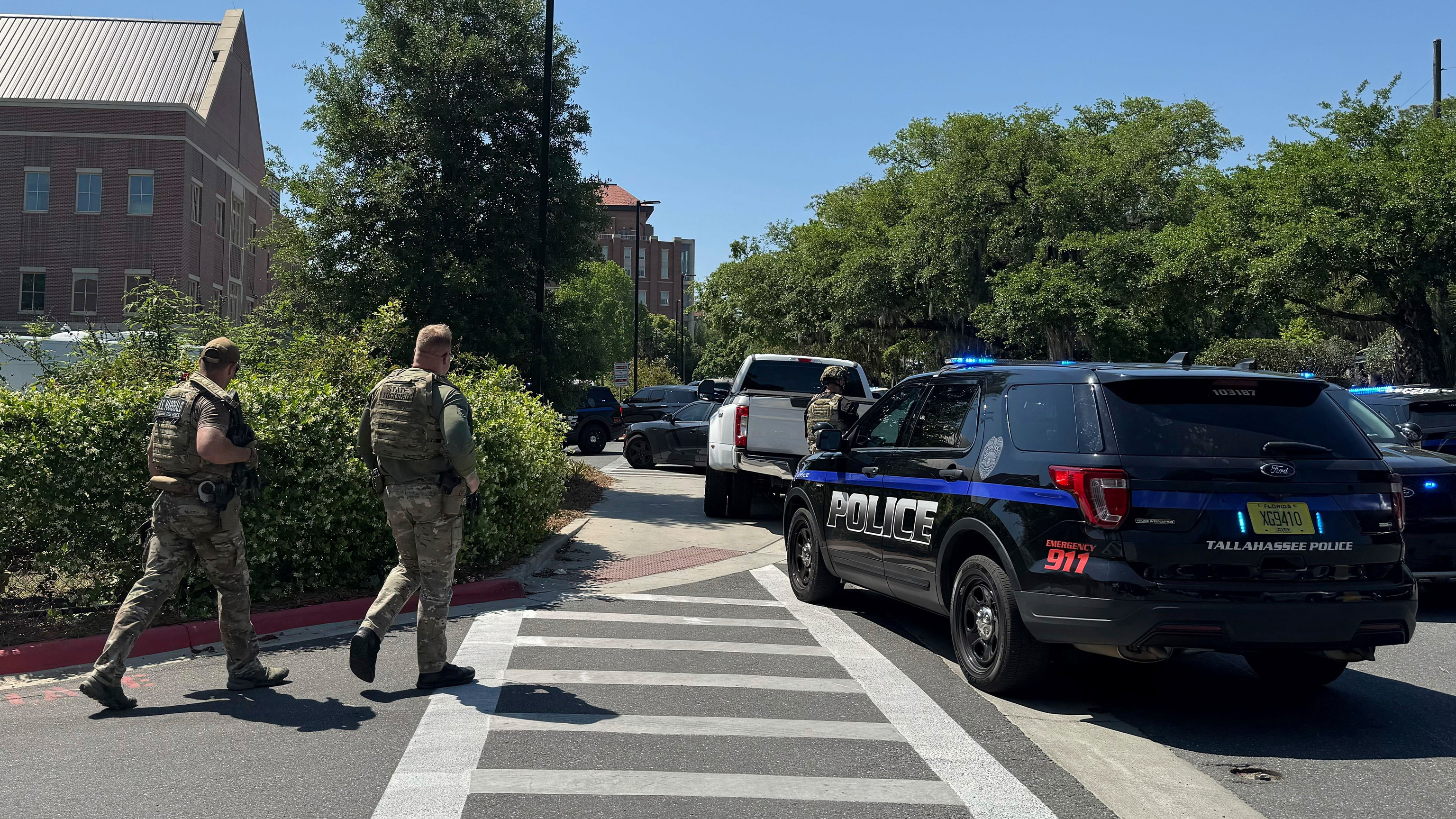Husband asks for forgiveness for wife, who is charged in connection with their children's deaths
Patrick Clancy's wife is under police custody.

A Massachusetts man grieving the loss of his three small children shared a heartbreaking tribute to them and a message of forgiveness to his wife, who is charged in connection with the children's deaths.
Patrick Clancy posted a statement Saturday, writing, "My family was the best thing that ever happened to me. I took so much pride in being Lindsay's husband and a dad to Cora, Dawson and Callan."
His wife Lindsay Clancy is currently hospitalized and in police custody.
The 32-year-old allegedly attempted suicide on Jan. 24, by jumping out of a window at the couple's house in Duxbury, a small seaside town about 30 miles south of Boston, according to local authorities.
First responders who rushed to the home after receiving a 911 call from a man about his wife's suicide attempt subsequently found three young children inside the home who were "unconscious with obvious signs of severe trauma," Plymouth County District Attorney Timothy Cruz said last week.
A 5-year-old girl identified as Cora Clancy and a 3-year-old boy identified as Dawson Clancy were both transported to a hospital in nearby Plymouth, where they were pronounced dead. An 8-month-old boy, later identified as Callan Clancy, was flown to a Boston hospital for treatment, where he later died.
Lindsay Clancy is now facing murder and assault charges related to the deaths of her three children.
Patrick Clancy spoke publicly on the matter for the first time on a GoFundMe page that was started by a family friend to raise money for "medical bills, funeral services, and legal help ... as he weathers this painful, life-altering tragedy."
In his nearly 1,300-word statement, Patrick Clancy shared memories of each of his children, describing Dawson as "naturally humorous and generous," Cora as "stunningly beautiful" and Callan, his youngest, as an "easy going child."
"If I was ever having a bad day, Callan always knew how to heal me. Perhaps that's why he held on a little longer - to spare me whatever pain he could," he wrote. "As excruciating as it was, I was fortunate and grateful to feel his warmth until his very last moment. Faith is my only hope of believing he felt mine."
Patrick Clancy also shared thoughts on his wife, writing that she has been portrayed by people who "never knew who the real Lindsay was."
"Our marriage was wonderful and diametrically grew stronger as her condition rapidly worsened," he wrote. "I took as much pride in being her husband as I did in being a father and felt persistently lucky to have her in my life."
Patrick Clancy did not share details on his wife's "condition."
The district attorney was asked by reporters during a press conference last week whether Lindsay Clancy had any known mental health issues.
"I'm not in a position to comment on mental health issues," Cruz replied. "However, I would say that everything is being looked at."
Lindsay Clancy reportedly worked as a nurse in Boston. Further details on her condition were not immediately made available to the public.
Patrick Clancy wrote that he wants family, friends and strangers to forgive his wife, as he says he has.
"I want to ask all of you that you find it deep within yourselves to forgive Lindsay, as I have," Patrick Clancy wrote. "The real Lindsay was generously loving and caring towards everyone - me, our kids, family, friends, and her patients. The very fibers of her soul are loving. All I wish for her now is that she can somehow find peace."
What to know about postpartum depression vs postpartum psychosis
While police and Lindsay Clayton's family have not commented on the state of her mental health, the case has put a spotlight on the struggles women can face following childbirth.
It has also highlighted the important distinction between postpartum psychosis and the more common postpartum depression.
While postpartum depression and postpartum psychosis are both conditions that can occur after childbirth, postpartum psychosis is rare and can lead to suicidal or homicidal thoughts, experts say.
"It is a true medical emergency," Dr. Jennifer Ashton, ABC News chief medical correspondent and a board-certified OBGYN, said of postpartum psychosis. "This is mental illness."
Ashton noted that in her 22-year career as a practicing OB-GYN, she has not personally encountered a case of postpartum psychosis, which she said appears "more acutely" than the more common postpartum depression.
"It can present with signs and symptoms like confusion, hallucinations, delusions, paranoia, obsessive thoughts and then of course, tragically, attempts to harm one's self or baby," Ashton said. "This is a completely different entity than postpartum depression."
Postpartum depression affects as many as one in eight women who give birth, according to the Centers for Disease Control and Prevention.
Symptoms of postpartum depression include withdrawing from loved ones, crying more than usual, feeling worried or overly anxious, feeling anger, doubting your ability to take care of your baby and thinking about harming yourself or your baby, according to the CDC.
The symptoms may last for weeks or months after giving birth, and are more intense and longer lasting than the "baby blues" that women may experience after giving birth.
Treatment options for postpartum depression will differ based on severity and type of symptoms and may include medication options, psychotherapy or support groups. In 2019, a drug, called Zulresson, was approved by the U.S. Food and Drug Administration as the first-ever medication made specifically for women suffering from postpartum depression.
Ashton noted that it is important to seek professional medical help in any case of a woman experiencing mental health struggles after giving birth. If a person is experiencing postpartum psychosis, Ashton said they should seek help at an emergency room.
"Absolutely, intervention is warranted for either," Ashton said of both postpartum psychosis and postpartum depression. "Medication can be lifesaving."
If you or someone you know is struggling with thoughts of suicide, call or text 988 or chat 988lifeline.org. Free, confidential help is available 24 hours a day, 7 days a week. You are not on your own.







